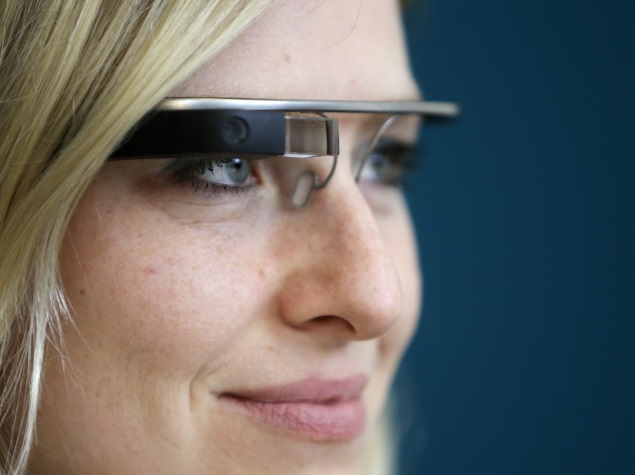- Home
- Wearables
- Wearables News
- Google Glass Being Used by Doctors to Diagnose Skin Conditions
Google Glass Being Used by Doctors to Diagnose Skin Conditions

For the patients who qualified for the trial, the emergency department physicians at the Rhode Island Hospital used the eyeglasses with a computer, camera and microphone built into the frame to contact a dermatologist through a video link using Glass.
Later, patients were surveyed about their experience with teledermatology.
"While the patients prefer in-person visits, they said they preferred the video consultation over a more widely practised telephone consult," said Paul S Porter, principal investigator.
For patients, a fast and accurate diagnosis means a faster path to satisfactory treatment.
"A device like this democratises telemedicine because a hospital can start a programme with little money and gain access to an experience that was only previously available at a much higher price point," Porter added.
Because of the interactive nature of the device, the teledermatologists were able to appreciate both non-specific skin eruptions and skin diseases.
Additionally, the off-site doctors were able to interact with the on-site doctors by asking questions and requesting additional skin locations to examine.
During the process of informed consent, medical staff explained to patients that no information was stored, and the live transmission was encrypted.
The participants overwhelmingly believed that their privacy was protected.
Rhode Island Hospital was the first hospital in the US to test Google Glass in an emergency department setting.
The earlier study began in March 2014 and concluded after six months.
The results were published in the journal JAMA Dermatology.
Catch the latest from the Consumer Electronics Show on Gadgets 360, at our CES 2026 hub.
Related Stories
- Samsung Galaxy Unpacked 2025
- ChatGPT
- Redmi Note 14 Pro+
- iPhone 16
- Apple Vision Pro
- Oneplus 12
- OnePlus Nord CE 3 Lite 5G
- iPhone 13
- Xiaomi 14 Pro
- Oppo Find N3
- Tecno Spark Go (2023)
- Realme V30
- Best Phones Under 25000
- Samsung Galaxy S24 Series
- Cryptocurrency
- iQoo 12
- Samsung Galaxy S24 Ultra
- Giottus
- Samsung Galaxy Z Flip 5
- Apple 'Scary Fast'
- Housefull 5
- GoPro Hero 12 Black Review
- Invincible Season 2
- JioGlass
- HD Ready TV
- Laptop Under 50000
- Smartwatch Under 10000
- Latest Mobile Phones
- Compare Phones
- Honor Magic 8 RSR Porsche Design
- Honor Magic 8 Pro Air
- Infinix Note Edge
- Lava Blaze Duo 3
- Tecno Spark Go 3
- iQOO Z11 Turbo
- OPPO A6c
- Samsung Galaxy A07 5G
- Lenovo Yoga Slim 7x (2025)
- Lenovo Yoga Slim 7a
- Lenovo Idea Tab Plus
- Realme Pad 3
- Moto Watch
- Garmin Quatix 8 Pro
- Haier H5E Series
- Acerpure Nitro Z Series 100-inch QLED TV
- Asus ROG Ally
- Nintendo Switch Lite
- Haier 1.6 Ton 5 Star Inverter Split AC (HSU19G-MZAID5BN-INV)
- Haier 1.6 Ton 5 Star Inverter Split AC (HSU19G-MZAIM5BN-INV)






![[Sponsored] Haier C90 OLED TV | Dolby Vision IQ, 144Hz OLED and Google TV in Action](https://www.gadgets360.com/static/mobile/images/spacer.png)









